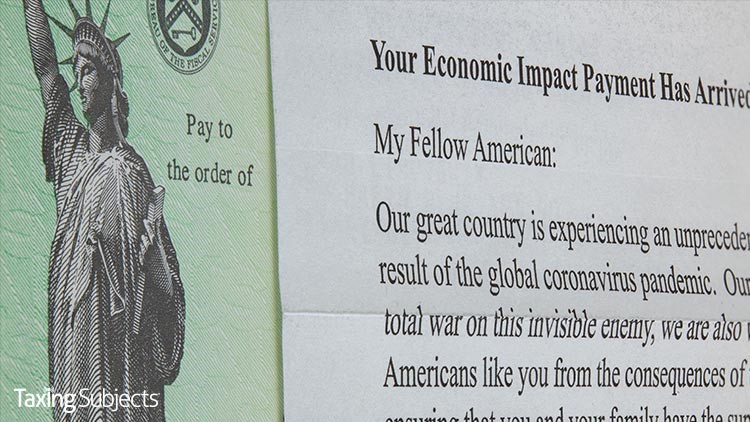
Some nine million letters are being sent later this month in a special mailing to people who haven’t had a need to file a tax return but may qualify for a Economic Impact Payment (EIP). The letters will encourage them to see if they’re eligible for an EIP.
The notices also let the recipients know there’s an Oct. 15 deadline to register for an EIP, and they can use the special Non-Filers: Enter Payment Info Here tool on IRS.gov to do it.
“The IRS continues to work hard to reach people eligible for these payments,” said IRS Commissioner Chuck Rettig. “These mailings are the latest step by the IRS to reach as many people as possible for these important payments. We are releasing this state-by-state information so that state and local leaders and organizations can better understand the size of this population in their communities and assist them in claiming these important payments. Time is running out to claim a payment before the deadline.”
The letters are part of a final stage of the IRS’s outreach and public awareness campaign on the Economic Impact Payments that started in March. The effort included IRS reaching out to thousands of partner groups across the country—including partner groups working with underserved communities, people experiencing homelessness, and those whose primary language isn’t English.
So far, the IRS says some seven million people have already used the Non Filers Tool to register for a payment.
The September letters will be sent from an IRS address and will be sent to people who haven’t filed a return for either 2018 or 2019. IRS research shows these are people who don’t typically have a tax return filing requirement because they appear to have very low incomes based on Forms W-2 and 1099, and other third-party statements available to the IRS.
The IRS cautions that receiving a letter is not a guarantee of eligibility. An individual is likely eligible for an Economic Impact Payment if they:
- are a U.S. citizen or resident alien;
- have a work-eligible Social Security number; and
- can’t be claimed as a dependent on someone else’s federal income tax return.
For more information on eligibility requirements, see the Economic Impact Payment eligibility FAQs on IRS.gov.
The IRS has released a state-by-state breakdown of the non-filer letters to be mailed. California leads the pack with 1.18 million letters to be received by the state’s citizens. Wyoming and Vermont hold down the smallest part of the spectrum, with 14,000 and 13,000 recipients respectively.
Who needs to file?
The IRS emphasizes that anyone required to file either a 2018 or 2019 tax return should file the tax return and not use the Non-Filers Tool. The online tool is designed for people with incomes typically below $24,400 for married couples, and $12,200 for singles. This includes couples and individuals who are homeless.
Those unable to access the Non-Filers Tool may submit a simplified paper return following the steps described in the Economic Impact Payment FAQs on IRS.gov.
Anyone using the Non-Filers Tool can speed up the arrival of their payment by choosing to receive it by direct deposit. Those not choosing this option will get a check.
Beginning two weeks after they register, people can track the status of their payment using the Get My Payment tool, available only on IRS.gov.